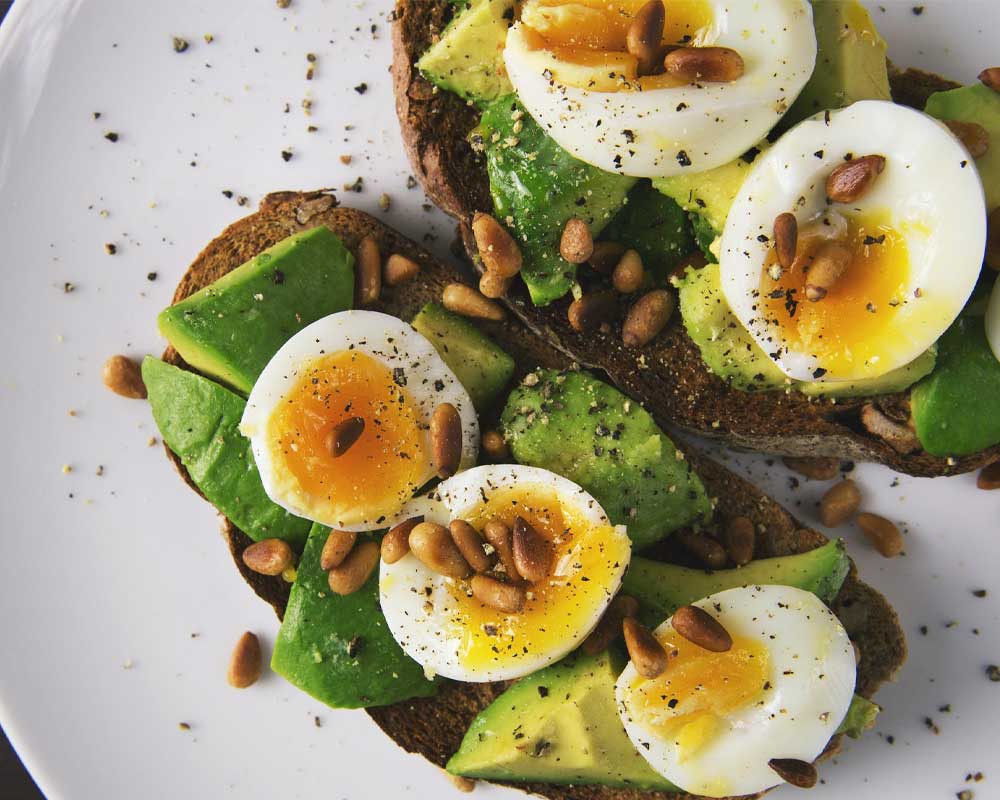
Healthy Fats for the Keto Diet
In today’s fast-paced world, more and more people are turning to the ketogenic diet to shed those extra pounds and lead a healthier life. The keto diet is renowned for its ability to help individuals achieve rapid weight loss while still enjoying delicious foods. Central to the success of the keto diet is the inclusion of healthy fats. In this article, we will explore the world of healthy-fats and how they play a vital role in the keto diet.

Understanding the Keto Diet
Before delving into the specifics of healthy fats, let’s first understand what the ketogenic diet is all about. The keto-diet is a high-fat, low-carbohydrate diet designed to switch your body’s primary source of energy from carbohydrates to fats. This metabolic state, known as ketosis, enables the body to burn stored fat for energy, leading to weight loss.
Why Healthy Fats Matter
Fats are a cornerstone of the keto diet, constituting the majority of daily calorie intake. However, not all fats are created equal. It’s essential to focus on healthy fats to reap the full benefits of the keto-diet while maintaining your overall health.
The Role of Healthy Fats in Ketosis
Healthy fats are crucial for ketosis because they provide the body with the necessary fuel for energy production. When you consume healthy fats, your liver converts them into ketones, which become the primary energy source. This metabolic shift is what makes the keto-diet so effective for weight loss.
Types of Healthy-Fats for the Keto Diet
Now that we understand why healthy fats are vital let’s explore the various types you should incorporate into your keto meal plan.
1. Avocado
Avocado is a keto superstar, packed with heart-healthy monounsaturated fats. It’s not only delicious but also versatile. You can enjoy it sliced on your salad or mashed into creamy guacamole.
2. Olive Oil
Olive oil is rich in monounsaturated fats and antioxidants, making it an excellent choice for cooking and drizzling over salads. It adds a delightful depth of flavor to your dishes.
3. Coconut Oil
Coconut oil is a staple in the keto diet due to its high content of medium-chain triglycerides (MCTs). MCTs are quickly converted into ketones, providing a rapid source of energy.
4. Fatty Fish
Salmon, mackerel, and sardines are rich in omega-3 fatty acids. These not only support ketosis but also promote heart and brain health.
5. Nuts and Seeds
Nuts and seeds like almonds, chia seeds, and flaxseeds are loaded with healthy-fats and fiber. They make for satisfying snacks or additions to your meals.
6. Butter and Ghee
Butter and ghee are keto-friendly options for cooking and flavoring. Opt for grass-fed varieties for added nutritional benefits.
7. Cheese
Cheese, especially varieties like cheddar and cream cheese, are high in saturated fats, making them a delicious addition to your keto menu.
8. Dark Chocolate
Yes, you can even enjoy dark chocolate on the keto-diet. Look for varieties with at least 70% cocoa content and indulge in moderation.
Balancing Your Fat Intake
While healthy fats are essential on the keto diet, it’s crucial to strike a balance. Ensure you’re not overloading on fats, as calorie control remains important for weight loss. Consulting a healthcare professional or nutritionist can help you determine the right fat intake for your specific goals.
Conclusion
Incorporating healthy-fats into your keto-diet is not only essential for reaching ketosis but also for maintaining overall health. By including foods like avocado, olive oil, and fatty fish in your meals, you can enjoy a delicious and sustainable approach to weight loss.
FAQs
1. Can I consume too much healthy fat on the keto-diet?
While fats are a primary component of the keto-diet, excessive fat intake can hinder weight loss. It’s essential to maintain a balance and monitor your calorie intake.
2. Are all fats suitable for the keto diet?
No, not all fats are suitable. Focus on healthy-fats like avocados, olive oil, and fatty fish while avoiding trans fats and excessive saturated fats.
3. Can I still lose weight on keto if I don’t eat a lot of fats?
To achieve ketosis, you need to consume a sufficient amount of healthy-fats. However, portion control is essential to avoid excessive calorie intake.
4. Is the keto diet suitable for everyone?
The keto-diet may not be suitable for individuals with certain medical conditions. Consult with a healthcare professional before starting the diet.
5. Can I cheat occasionally on the keto-diet?
Occasional indulgences are acceptable, but frequent cheating can disrupt ketosis and slow down your progress. It’s best to stay consistent for the best results.
Read More
Are Beans Keto-Friendly? Unveiling the Truth About Beans on the Ketogenic Diet
Are Blueberries Keto-Friendly? Unveiling the Truth About These Little Blue Gems
Are Cashews Keto-Friendly? Unraveling the Nutty Truth
Are Sweet Potatoes Keto-Friendly?
Are Tomatoes Keto-Friendly? Unveiling the Red Truth!
Best Keto Supplements: Boosting Your Weight Loss Journey
